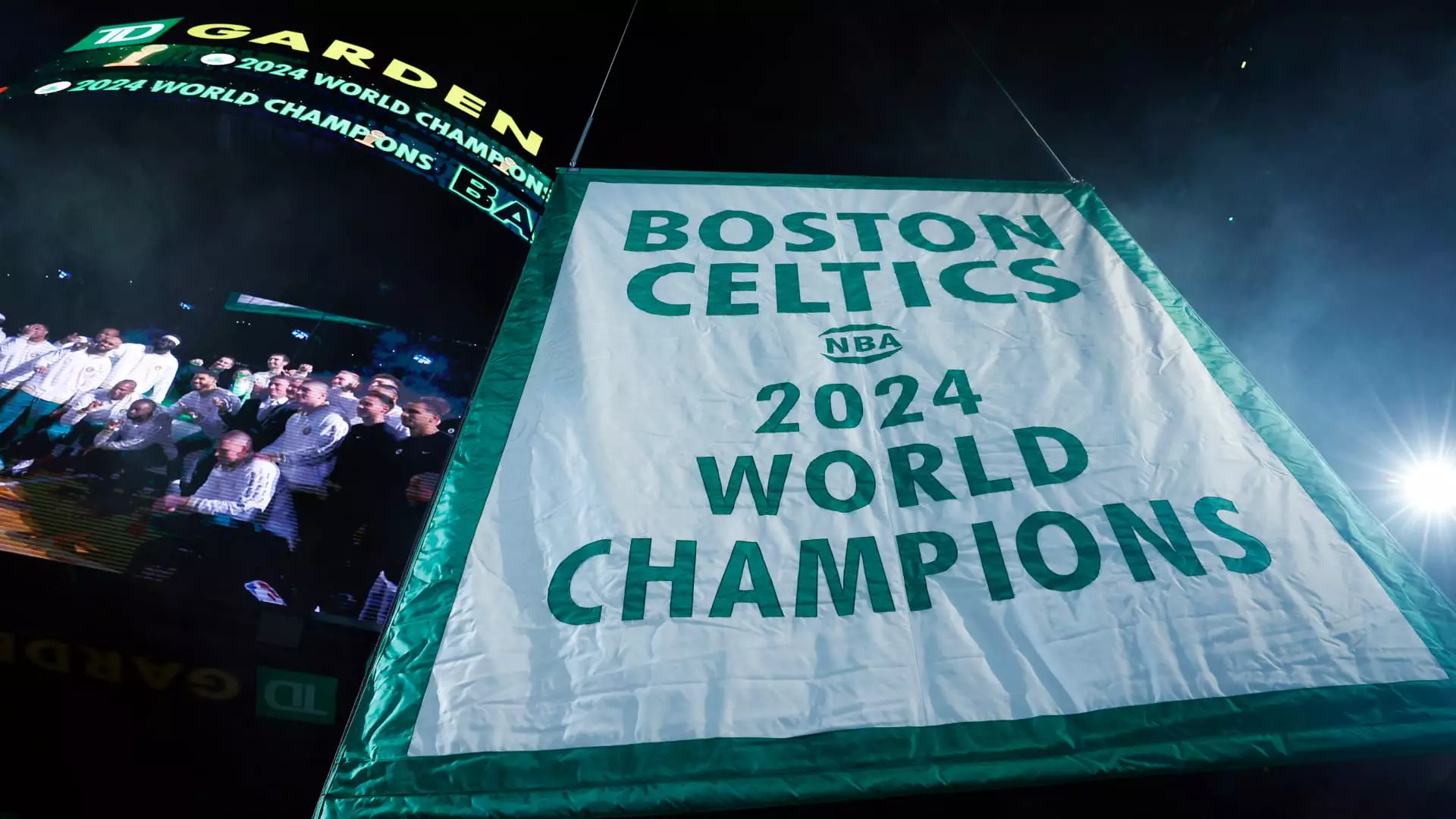The NBA landscape is undergoing a seismic shift with the recent announcement that the Boston Celtics, the league’s reigning champions, are being acquired for a staggering $6.1 billion. This landmark transaction, orchestrated by private equity executive Bill Chisholm and his consortium, sets a precedent not only for the Celtics but for sports franchises across the board. For a team steeped in tradition and resilience, this sale represents more than just a transfer of power; it signals the dawn of a new era, rife with both opportunities and challenges.
One cannot help but analyze the implications of private equity firms, such as Sixth Street, entering the once aristocratic domain of sports ownership. This valuation eclipses previous records, spotlighting a burgeoning trend where astronomical sums are being poured into franchises, transforming them into assets akin to tech startups and real estate investments. This evolution calls into question the long-term interests of the franchises: Are teams being run for their cultural significance and community ties, or are they becoming mere profit-driven entities? With valuations soaring to incredible heights, there is an undeniable risk that the soul of these iconic franchises may get overshadowed by bottom-line considerations.
Local Fan Base and Community Connection
Chisholm’s affirmation of his lifelong allegiance to the Celtics positions him as a figure who ostensibly understands the cultural fabric of Boston. His claim that he recognizes the team’s significance extends beyond the hardwood, embodying a responsibility to its legacy and fans. However, while his local roots are promising, the reality of private equity ownership often leans heavily towards fiscal responsibility and profit maximization, often at the expense of what makes teams like the Celtics a beloved institution.
Given the history of the Celtics, boasting 18 championships, it is crucial to scrutinize how this new ownership will balance the intricate dance between maintaining competitive excellence and honoring the longstanding traditions that resonate with die-hard fans. Is monetary success now prioritized over on-court victory, the very essence of sports? As much as the betting odds have owners salivating over immeasurable wealth, the heart of the Celtics, captured in the spirit of their fans, must remain paramount if they are to retain their standing not just as champions but as a community pillar.
The Economics of Sports Franchises
This sale occurs amid an environment characterized by skyrocketing franchise valuations, driven predominantly by lucrative media rights deals. The NBA’s new 11-year agreement worth $76 billion sets off alarm bells about the sustainability and economic equity of the league. With sports corporations pocketing such impressive windfalls, how will they redistribute this wealth back into their communities or remain equitable to their fans? The disparity between extreme wealth concentration in teams and the everyday realities for fans and local economies creates an unsettling dichotomy.
Chisholm and his team will have to navigate these complexities, particularly in a market increasingly dominated by conglomerates rather than individuals. It remains to be seen how his ownership will address issues such as ticket pricing, accessibility, and fan engagement, especially when the temptation to prioritize the financial bottom line can lead to becoming disconnected from the fanbase.
The Legacy of the Celtics
As we approach the potential approval of this sale, one must ponder: what will happen to the soul of the Celtics under this new ownership? The franchise is not just a team; it’s an institution embedded deeply within the Boston community. The rich tapestry woven by decades of loyalty, heartbreak, and triumph cannot be traded for the allure of capital gain. Every season, the Celtics have stood as a monument to resilience, and under newly minted ownership, the challenge will be to ensure they continue to represent something much larger than profits—something profound, rooted in history and passion.
Ultimately, the fate of the Celtics lies in a delicate balance of retaining the affection from their loyal fans while navigating the shifting tides of modern sports economics dominated by wealthy investors and private equity firms. Only time will tell if Chisholm is up to the formidable task of carrying this legacy forward while ensuring that the Celtics continue to inspire not just on the court, but within the very heart of Boston itself.

